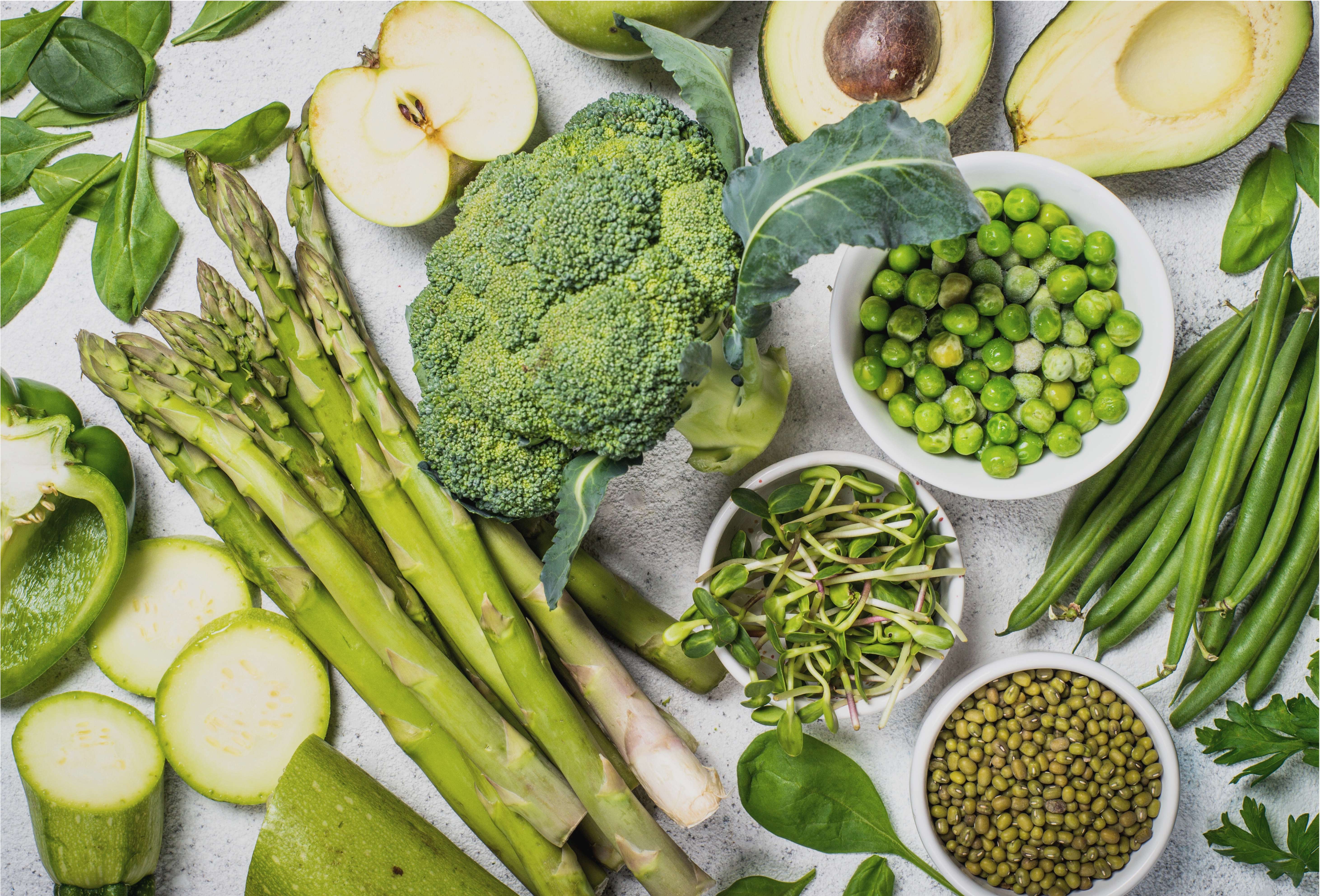
Popeye Ate His Spring Greens - Are You Eating Yours?
When you think of greens, what comes to mind? Maybe it's a bowl of spinach or a salad with kale—or perhaps you're thinking about something else entirely….and no, Green Fast Food Shakes do not count!
There are many different types of greens, and they all have unique health benefits. It might surprise you that greens aren't just for salads; you can add them to soups, stews, and smoothies! This blog is for you if you want to incorporate more greens into your diet. We'll tell you why it's essential to eat your greens daily and how they can keep you healthy.
Greens are full of vitamins and minerals in addition to phytochemicals and antioxidants. These chemicals in plants help boost your immune system and fight off disease. By eating more greens, you'll be helping yourself stay healthy and strong by giving your body the nutrients it needs to fight off illness and keep your mind sharp. Greens are also a great source of fiber, which helps lower cholesterol levels and stabilize blood sugar levels. Packed with iron, calcium, and vitamin C, some experts recommend eating green leafy vegetables daily as a balanced diet.
Most of us have been told our whole lives that eating our greens is vital....but has anyone told you why? Whether you are salad-shy or a broccoli-fiend, here are a few ways adding a bit of green to your diet can improve your health!
Healing
Vitamin K is essential for healthy blood clotting and can help wounds heal, and the good news is that you should be able to get all you need from greens. Did you know that many antibiotics may destroy vitamin-K-producing bacteria in the gut, potentially decreasing vitamin K levels, especially if you take medicine for more than a few weeks? People with a poor appetite while using long-term antibiotics may be at greater risk for a deficiency. They may benefit from a vitamin K supplement.
Since vitamin K is fat-soluble, it is best to eat vitamin K foods with some fat to improve absorption. So, drizzle some olive oil or add diced avocado to your favorite leafy green salad!
A simple daily portion of spring greens, kale, or spinach can provide over ten times the adequate amount recommended!
Strengthening your immune system
Cruciferous vegetables, such as bok choy, broccoli, brussels sprouts, and cabbage, are packed with antioxidants, which we know are essential for protecting our organs and strengthening our immune systems. Kale is an exceptionally high source of antioxidants – toss it into a berry smoothie for a super-charged antioxidant fix!
Eyesight
Most cruciferous vegetables mentioned above also contain a superhero antioxidant called carotenoids. These may help protect your eyes against age-related macular degeneration (deteriorating eyesight).
Bone health
Many greens are good sources of two essential nutrients for bone health: vitamin K and calcium. Low vitamin K levels have been associated with an increased risk of osteoporosis and arthritis, and, as we know, calcium is the building block for our bones.
Leafy greens such as kale, broccoli, spring greens, and bok choy are all excellent sources of these nutrients.
Iron
Everyone is familiar with Popeye getting his impressive muscles and strength from spinach. Although spinach isn't as high in iron as he would have you believe, dark leafy greens such as spinach, kale, and collard greens, are certainly a good source, especially when eaten with other rich sources such as lentils, tofu or wholegrain pasta.
Vitamin C
Along with being necessary for the growth and repair of all tissues in the human body and being a powerful antioxidant, vitamin C helps the body to absorb iron. Vitamin C is high in broccoli, kale, and spring greens, which are most nutrient-rich when eaten raw or as close to raw as possible (such as lightly steamed broccoli).
Folic acid
Folic acid (or folate) is crucial for many of the body's essential processes, such as brain and nerve function, DNA production, and red blood cell formation. It also plays an important role in reproduction. Suppose you are pregnant or trying to have a baby. The government recommends taking 400 micrograms of the folic acid supplement daily until a woman is 12 weeks pregnant to help prevent neural tube defects (such as spina bifida). All other adults need 200 micrograms a day. Thankfully, green vegetables, such as asparagus, Brussels sprouts, spinach, kale, white cabbage, pak choi, rocket, broccoli, lettuce, and peas, are all excellent sources.
Potassium
Potassium plays a crucial role in balancing bodily fluids, nerve signal transmission, maintaining healthy blood pressure, and helps to prevent kidney stones. Bananas are praised as potassium-rich, but did you know that spinach and broccoli contain more potassium? The best plant sources include legumes (peas, beans, and lentils), regular and sweet potatoes, dried fruit, squash, avocado, spinach, broccoli, and bananas.
Fiber
Fiber is essential for a healthy digestive system and encourages good gut bacteria. It may reduce the risk of heart disease, stroke, high blood pressure, diabetes, obesity, gastrointestinal disorders, and bowel cancer. Alongside their other benefits, leafy greens are high in fiber – kale, spinach, collard greens, and Swiss chard are all great sources. Whether you're adding spinach to your smoothie or broccoli to your stir fry, including one to two portions of greens in your diet per day is likely to have long-lasting health benefits. Aim for 25 - 30 grams of leafy green vegetables, oats, fruit, grains, legumes, nuts, seeds, and other vegetables daily!
Looking to add more nutritious, whole food to your diet? The Plantable’s 28-Day Reboot program makes transforming the way you eat simple and effortless. The program offers satisfying chef-prepared ready-to-eat meals, education, and unlimited access to a personalized coach. Transform your health in just 28 days.

